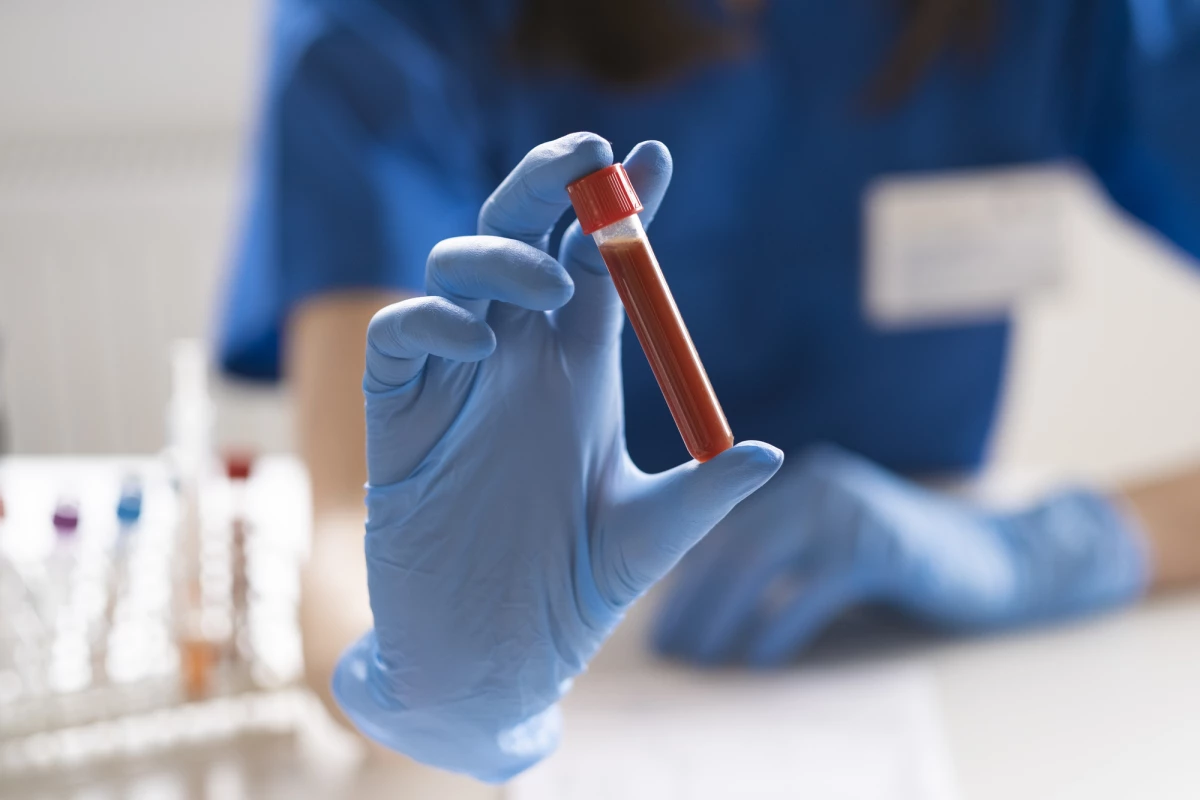A new proof-of-concept study is suggesting a novel blood test could effectively predict a person’s risk in developing a broad array of different diseases. The prospective test is being dubbed a “liquid health check” and uses machine learning models to identify patterns of proteins that can be linked to particular health conditions.
"Proteins circulating in our blood are a manifestation of our genetic make-up as well as many other factors, such as behaviors or the presence of disease, even if not yet diagnosed," explains Claudia Langenberg, one of the University of Cambridge researchers working on the project. "This is one of the reasons why proteins are such good indicators of our current and future health state and have the potential to improve clinical prediction across different and diverse diseases."
The idea behind the prospective blood test is that certain health conditions can be detected by identifying specific protein patterns in a blood sample. Using a newly developed platform called SomaScan, 5,000 individual proteins can be studied from a single blood sample.
Using this data particular protein expression patterns can be correlated with various health and fitness conditions, but perhaps more importantly, machine learning techniques can generate predictive models. This means protein expression data can hypothetically be used to identify the likelihood of a person going on to develop conditions such as type 2 diabetes or cardiovascular disease.
The new study tested the efficacy of predicting 11 different health indicators using these protein expression patterns. Some models were more effective than others, such as the protein expression model predicting percentage body fat. The cardiovascular risk model was cited as only modestly predictive, however, the researchers do suggest the protein-pattern-based system is generally more convenient, and cheaper, than many traditional tests currently available for evaluating health conditions.
“It’s remarkable that plasma protein patterns alone can faithfully represent such a wide variety of common and important health issues, and we think that this is just the tip of the iceberg,” says Stephen Williams, CEO of SomaLogic, the startup working to commercialize this technology. “We have more than a hundred tests in our SomaSignal pipeline and believe that large-scale protein scanning has the potential to become a sole information source for individualized health assessments.”
It is important to note that although this new study was independently peer-reviewed, and published in a credible journal, it also was primarily funded by SomaLogic, the company developing the technology. SomaLogic claims seven different protein-expression tests are already clinically available to a select number of doctors in the United States but they have yet to be officially cleared or approved by the US Food and Drug Administration.
Peter Ganz, from the University of California San Francisco and co-lead on the new study, calls this research a critical milestone in the development of personalized preventative medicine. Ganz is a member of SomaLogic’s Medical Advisory board, although he receives no renumeration for the board position.
“This proof-of-concept study demonstrates a new paradigm that measurement of blood proteins can accurately deliver health information that spans across numerous medical specialties and that should be actionable for patients and their health care providers,” says Ganz.
At this point the published study is clear in stating the technology is still in its proof-of-concept stage. The technology is inarguably promising but needs to be further verified, and made more affordable, before routine health services can safely incorporate it into clinical uses.
The new study was published in the journal Nature Medicine.
Source: University of Cambridge




